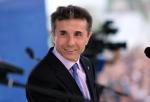Commentary.
The Presidential election held in Azerbaijan on 9 October, and the political situation that emerges as a result of it, can be summed up in one word: problematic. That this election failed in some respects from meeting widely accepted international standards is clear to those who want to make a dispassionate assessment. Some problems observed in all elections that have taken place in Azerbaijan in the last decade have persisted, and the leadership of the Central Elections Commission, which has remained largely unchanged for the whole period, seems unwilling or unable to correct them.
Context, process and outcome.
The context in which the election was held was far from ideal. The reports of organisations such as Human Rights Watch and Amnesty International, the terse but clear concerns expressed by the leadership of the European Union, and the concerns of big sections of the international media, may have been dismissed lightly by the Azerbaijani authorities, but in their totality they provide a negative picture of the context in which the election was held that is serious enough to impact the evaluation of the event on 9 October itself. There was some improvement in the situation in the three week run up to the election which saw the opposition allowed to voice its opinions on national television and to mobilise in the streets.
There were also other issues worth noting, for example the odd way in which the incumbent Ilham Aliev decided to run his campaign, and the late but effective way in which the opposition managed to rally around the candidacy of Camil Hasanly. Hasanly himself gave his all, and was more effective than many had thought he would be. The opposition however failed to mobilise a critical mass for its activities. Part of this was due to the opposition’s own limitations, and part due to the very clear dangers faced by those who publicly associate themselves with the opposition. There is however another factor at play which the opposition with its rhetoric seems to have failed to understand: most Azerbaijanis, regardless of whether they like Aliev or not, do not want to go back to the chaos of the 1990s. Whilst the government cleverly plays on this feeling, the opposition seems to be oblivious to its importance.
Shortcomings in the election process itself were noted, and will no doubt be the subject of reporting by the more credible election monitoring organisations. The attitude of the CEC to be meticulous where its suits it, and brush aside serious shortcomings when it does not, contributes to the undermining of trust in the process.
The provisional result of the election gives the incumbent President 84.73% of the vote with a 72.31% voter turnout. Given the context and the process this result, which in any normal election context would be considered exaggerated, may not be the most contentious part of the outcome. A victory for Ilham Aliev with a wide margin was anticipated and predicted. The pattern of what happened on election-day and in the counting process in this, as in previous elections in Azerbaijan, was chequered.
A twilight zone that has become a comfort zone.
The result of all this is an unsatisfactory outcome. The Azerbaijani authorities have over the last decade positioned themselves in a twilight zone between democracy and authoritarianism. This election proves what some had been worrying about for some time, that this twilight zone has now become the authorities comfort zone. However this election has in many ways proven that this situation is not sustainable. President Aliev will now have to decide very soon in which direction he wants to take his country. His speech on election night gives us little indication of what his choice will be. But once the dust of the election campaign has settled down, there will be important and crucial decisions to make that will define his place in Azerbaijani history.
Source: CEW editorial team





